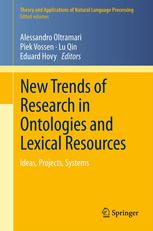

Most ebook files are in PDF format, so you can easily read them using various software such as Foxit Reader or directly on the Google Chrome browser.
Some ebook files are released by publishers in other formats such as .awz, .mobi, .epub, .fb2, etc. You may need to install specific software to read these formats on mobile/PC, such as Calibre.
Please read the tutorial at this link: https://ebookbell.com/faq
We offer FREE conversion to the popular formats you request; however, this may take some time. Therefore, right after payment, please email us, and we will try to provide the service as quickly as possible.
For some exceptional file formats or broken links (if any), please refrain from opening any disputes. Instead, email us first, and we will try to assist within a maximum of 6 hours.
EbookBell Team

4.7
16 reviewsIn order to exchange knowledge, humans need to share a common lexicon of words as well as
to access the world models underlying that lexicon. What is a natural process for a human turns out to be an extremely hard task for a machine: computers can’t represent knowledge as effectively as humans do, which hampers, for example, meaning disambiguation and communication. Applied ontologies and NLP have been developed to face these challenges. Integrating ontologies with (possibly multilingual) lexical resources is an essential requirement to make human language understandable by machines, and also to enable interoperability and computability across information systems and, ultimately, in the Web.
This book explores recent advances in the integration of ontologies and lexical resources, including questions such as building the required infrastructure (e.g., the Semantic Web) and different formalisms, methods and platforms for eliciting, analyzing and encoding knowledge contents (e.g., multimedia, emotions, events, etc.). The contributors look towards next-generation technologies, shifting the focus from the state of the art to the future of Ontologies and Lexical Resources. This work will be of interest to research scientists, graduate students, and professionals in the fields of knowledge engineering, computational linguistics, and semantic technologies.